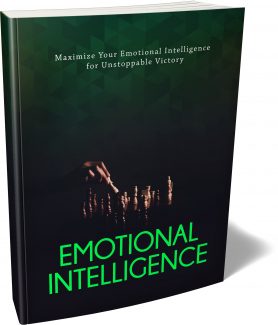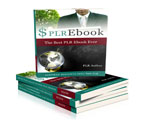 License Type: Master Resell Rights
License Type: Master Resell Rights  File Type: ZIP
File Type: ZIP
 SKU: 62499
SKU: 62499  Shipping: Online Download
Shipping: Online Download
Sample Content Preview
What is Emotional Intelligence?
The phrase "emotional intelligence" can actually be traced back to a paper published by Michael Beldoch in 1964. However, it became very popular in the United States and elsewhere, especially among management circles, in 1995. In that year, the journalist Daniel Goleman published a book of the same name.
The initial public perception of the concept of emotional intelligence is that it is a mix of Trait and Ability impacting social leadership or interpersonal relationships. More specifically, it can be broken down into four key parts: perceiving emotions, using emotions to our benefit, understanding other people's emotions, and managing our own.
Put in these terms, emotional intelligence seems pretty straightforward. However, it has very important components that we need to seriously examine instead of just automatically assume.
This is the big danger of emotional intelligence. Since we get along with other people and have some level of experience as far as social interactions are concerned, it's too easy to gloss over the intricacies and fine details of this skill. That's precisely what emotional intelligence is. It is a skill.
Some people have higher levels of natural emotional intelligence, especially empathy, but it is still a skill. You need to fine tune it and polish it for your initial level of emotional intelligence to help you live up to your fullest potential.
The key components I mentioned above can be actually be broken down into four key areas: awareness, understanding, control and empathy.
Emotional Awareness
Emotional intelligence, at the very least, enables you to be aware of other people's emotions. This means you are able to correctly identify the range of emotions that they are feeling. This is what makes other people's emotions very tricky because we're not confronted or faced with black and white situations.
When you look at somebody, you can't just say that that person's angry. Usually, the person has a range of emotions. Maybe you're looking at somebody, and they're feeling apprehensive, a little fearful, and quite shocked. Other people would have a different mix of emotions.
People who have high emotional intelligence don't gloss over or dismiss these secondary or tertiary emotions. Correct emotional identification often boils down to getting a clear understanding of the mix of emotions somebody is feeling.
It's so much easier and simpler to just say that a person is shocked and call it a day. Unfortunately, you're not really fully understanding that person if you don't bother to look at other emotions that may be at play.
Another key component of emotional awareness is your own ability to be emotionally honest with yourself. In other words, you have to be able to read your own emotions, and this has to be a complete and honest objective assessment.
In other words, you can't just assume that since you're subjectively feeling a certain way, then that is the absolute truth. On a purely subjective basis, that is absolutely correct. After all, if you're feeling angry or upset, you have every right to feel that way. You obviously should know yourself enough to clearly label what you're feeling at any given time.
The problem here is, your emotions don't exist in a vacuum. Other people looking in from the outside must be able to clearly read you as well. There's a problem when there's a disconnect between the objective reading of your emotions and your own labeling of your emotions.
It's not unusual for people to feel really angry, but other people would think that they're just disappointed, let down or inconvenienced. Eventually, this disconnect can actually cause serious problems.
Finally, increased emotional awareness leads to the ability to function without emotional denial. In other words, when you feel some strong emotion, you can easily own up to it. You're not making excuses for it, nor are you trying to pass it off as something else.
Emotional Understanding
In addition to understanding other people's emotions as well as your own emotions and clearly identifying them, emotional intelligence also involves deep emotional analysis.
When somebody feels emotionally upset, it is not just something that they feel at a given point in time and in a certain place. It has an impact. It can tie back to something that happened before, or it can cause consequences that will resonate in the future.
People with high EI understand this. This is why they are just as concerned about future impact and consequences as they are with root causes of why people feel the way they do. This analysis also applies to their own emotional states.
Emotional Control
This is where things get real. In the previous two parts of emotional intelligence, it's very easy to just look at it as some sort of intellectual exercise. It's very easy to file this information in the category "something nice to know" and leave it at that. But if you are able to control your emotions, you are able to ultimately control your destiny.
The sad reality is that the vast majority of people actually act out of impulse. Now, most people are not going to admit this to your face. Most people would come up with all sorts of rational sounding explanations why they made the kind of decision they made. Don't believe them.
In a recent study, scientists discovered that a large percentage of people's decisions were made purely out of impulse. However, when asked to explain those decisions, the subjects came up with all sorts of rational sounding reasons.
- License: Master Resell Rights
- Category:Ebooks
- Tags:2019 Ebooks Master Resale Rights








